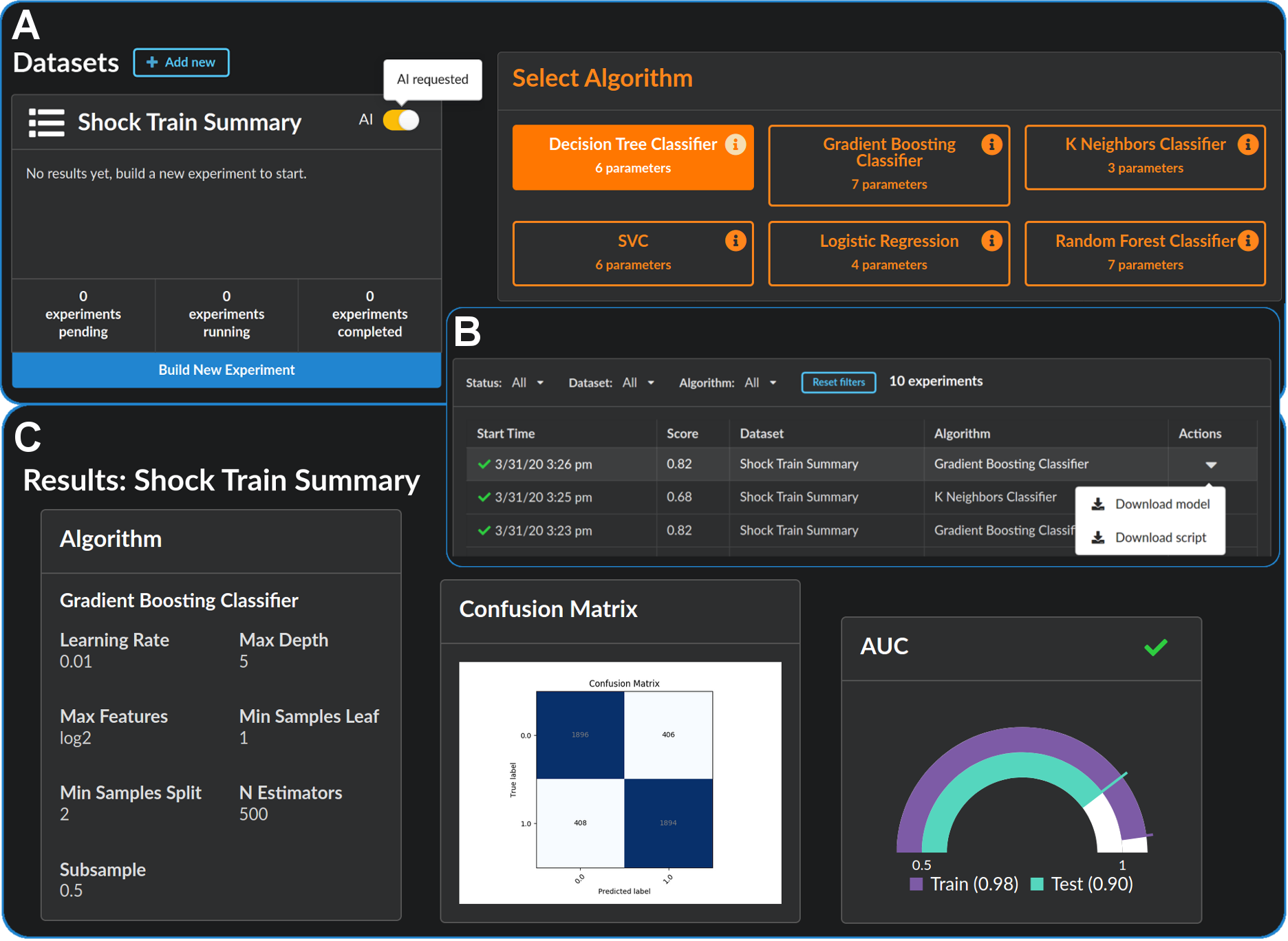Automating Digital Health
While artificial intelligence (AI) has become widespread, many commercial AI systems are not yet accessible to individual researchers nor the general public due to the deep knowledge of the systems required to use them. We believe that AI has matured to the point where it should be an accessible technology for everyone1. The ultimate goal of this research area is to develop AI systems that automate the entire computational workflows of today’s data scientists. Doing will accelerate the analysis of complex data in the biomedical and health care domains.

See my post talking about our Bioinformatics paper.
Related Publications
Pediatric ECG-Based Deep Learning to Predict Left Ventricular Dysfunction and Remodeling
Circulation
Accuracy of deep learning models in interpreting intrapartum fetal monitoring to predict fetal acidemia
American Journal of Obstetrics and Gynecology (AJOG)
Evaluating recommender systems for AI-driven biomedical informatics
Bioinformatics
A System for Accessible Artificial Intelligence
Genetic Programming Theory and Practice XIV.
Data-driven Advice for Applying Machine Learning to Bioinformatics Problems
Pacific Symposium on Biocomputing (PSB)
